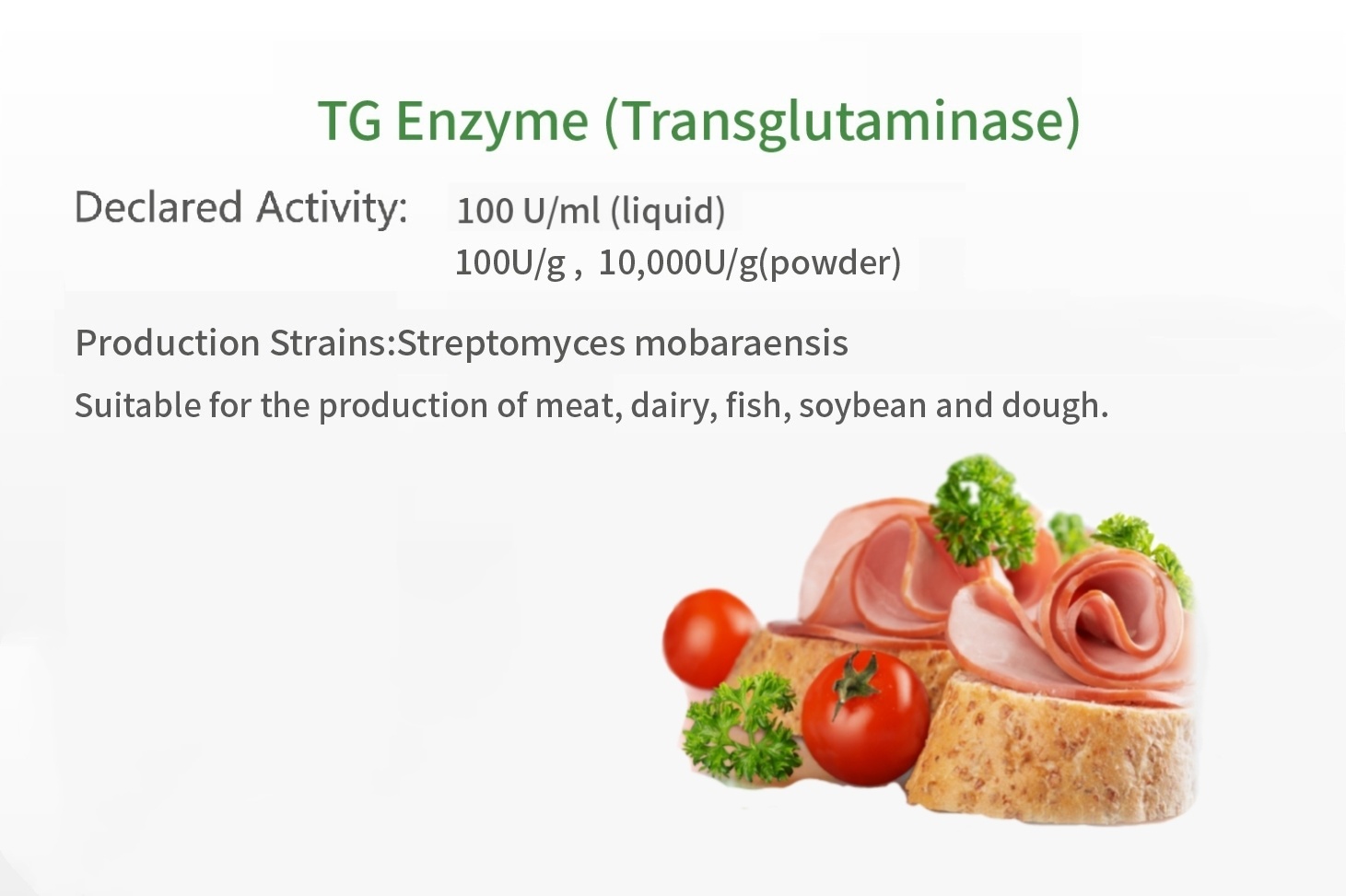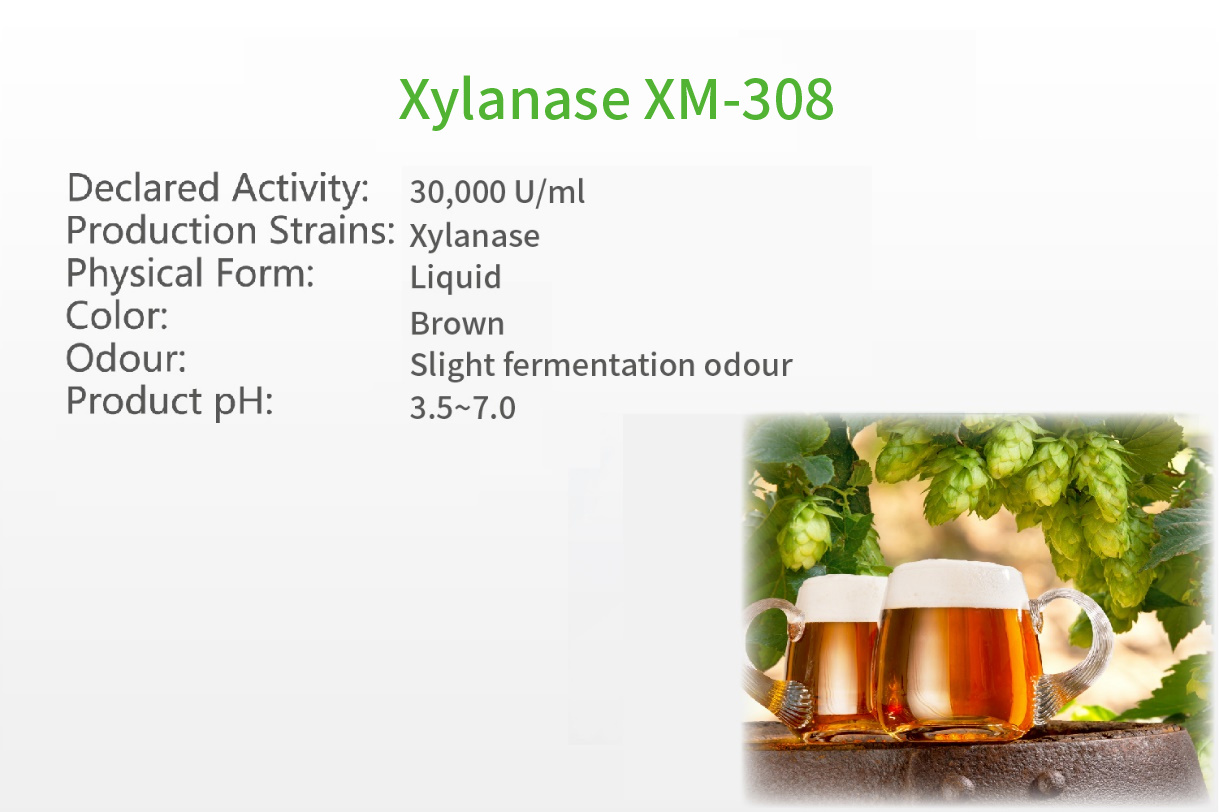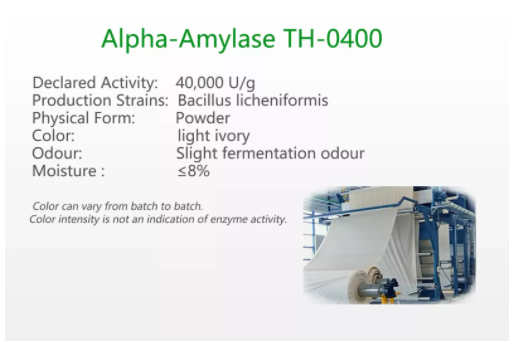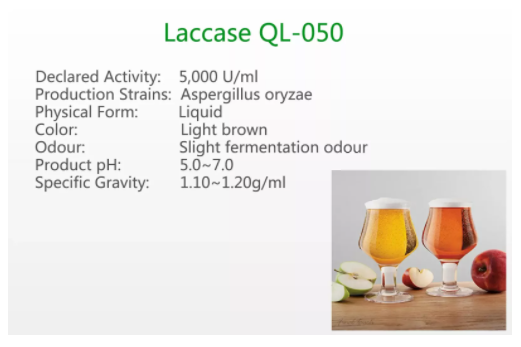Products
Contact us
Edna Yang
Tel: +86-510-8525-9383
Cell: +86-151-5221-3005
Email: edna.yang@bolibio.com
Jiangsu Boli Bioproducts Co.,Ltd.
Add: 93 Yangzhou Road, Jiangyan Economic Development Zone, Jiangsu 225500, China
Jiangsu Boyang Bioproducts Co., Ltd.
Add: 30 Tongwang Road, Nantong Economic Development Zone, Jiangsu 226010, China
Product Description
Description
PE-3000 is a powder form pectinase produced from strains of Aspergillus niger through submerged fermentation, extraction and refining process. It is a compound enzyme product of pectinesterase, polygalacturonase and pectinlyase, which can breakdown pectin through lipolysis, hydrolysis and pyrolysis respectively and release galacturonic acid, oligomeric galacturonic acid, unsaturated galacturonic acid and oligomeric galacturonic acid, etc. PE-3000 is mainly applied to fruit processing of grapes, apples, strawberries, hawthorn, dragon fruits, sea buckthorn, kiwi, pineapple and prickly pear, etc. It is also suitable for endothelial denudation of the lotus seeds and garlic, as well as removal the skins of oranges. As an effective clarifying agent typically used in food and beverage industry, PE-3000 can reduce juice viscosity, improve the filtration rate and juice yield, and clarify fruit juices and juice wine.
Product Characteristics
Effect of pH
PE-3000 works at pH from 3.0 to 6.0 with its optimal pH range from 3.5 to 5.5.
Effect of Temperature
PE-3000 can work at temperatures below 45°C with its optimal temperature range from 45 to 50°C. At a temperature of 60°C for 15 minutes, PE-3000 will remain its 23% enzymatic activity.
Inhibitors
Ion, calcium, zinc and tin ions are inhibitors of the enzyme activity. When this product is used to clarify juice, the container should be selected carefully so as to avoid presence of any inhibitors.
PE-3000 is a powder form pectinase produced from strains of Aspergillus niger through submerged fermentation, extraction and refining process. It is a compound enzyme product of pectinesterase, polygalacturonase and pectinlyase, which can breakdown pectin through lipolysis, hydrolysis and pyrolysis respectively and release galacturonic acid, oligomeric galacturonic acid, unsaturated galacturonic acid and oligomeric galacturonic acid, etc. PE-3000 is mainly applied to fruit processing of grapes, apples, strawberries, hawthorn, dragon fruits, sea buckthorn, kiwi, pineapple and prickly pear, etc. It is also suitable for endothelial denudation of the lotus seeds and garlic, as well as removal the skins of oranges. As an effective clarifying agent typically used in food and beverage industry, PE-3000 can reduce juice viscosity, improve the filtration rate and juice yield, and clarify fruit juices and juice wine.
Product Characteristics
| Declared Enzyme: | Pectinase |
| Appearance: | Ivory Powder |
| Enzyme activity: | 30,000 U/ml(minimum) |
| Moisture: | 8%(Maximum) |
Effect of pH
PE-3000 works at pH from 3.0 to 6.0 with its optimal pH range from 3.5 to 5.5.
Effect of Temperature
PE-3000 can work at temperatures below 45°C with its optimal temperature range from 45 to 50°C. At a temperature of 60°C for 15 minutes, PE-3000 will remain its 23% enzymatic activity.
Inhibitors
Ion, calcium, zinc and tin ions are inhibitors of the enzyme activity. When this product is used to clarify juice, the container should be selected carefully so as to avoid presence of any inhibitors.
Ingredients
|
Ingredients
|
Approximate Percentage
|
|
Pectinase
|
20~40%
|
|
Corn starch
|
55~75%
|
|
Water
|
2~8%
|
Allergen Information
This product does not contain any of the substances or products causing allergies or intolerance shown on the Allergen List of Annex 2 of Regulation (EU) No 1169/2011.
Benefits
Adding PE-3000 into the detritus of fruits can make it easy to squeeze juice and also improve the juice yield. PE-3000 can dissolve the insoluble pectin under optimal conditions, decrease pectin viscosity, make the suspended particulates flocculating so that the fruit juice and juice wine are easy to be clarified and filtered. As a desirable natural clarifying agent, PE-3000 can not only shorten the processing time but also improve quality of the finished products.
Dosage Guidelines
The conditions of enzymatic clarification and the dosage of PE-3000 may vary with the different pectin content of different fruit juice. The effect of enzymatic clarification of juice not only depends on the different types of products, processing temperatures and pH, but also the concentration of enzyme and the time of clarification. In order to ensure the quality of the juice, lower enzyme concentration and longer clarification time should be used. Due to the different nature of various fruit juices, small trials of the optimal enzyme concentration should be done first prior to the regular use of enzymatic clarification. Depending on the different application, pectinase can be added during different processing stages such as impregnation, fermentation or storage. If pectinase is added after fermentation of fruit wine, it will need 8 to 12 hours to get the reaction completed. In general, dosage level of PE-3000 is 80 to 330 grams per ton of fruit pulp.
Packaging
This product is packaged in 25kg cardboard drums or kraft paper bags. Customized packaging is available upon request.
Storage & Shelf-life
This enzyme has been formulated for optimal stability. Typical shelf-life is six months provided it is stored below 25°C in its original packaging, sealed and unopened, protected from the sunlight. Its shelf-life will be eighteen months if this product is stored properly at 0~10°C. Prolonged storage and/or adverse conditions such as higher temperatures may lead to a higher dosage requirement, and should be avoided.
Safe Handling of Enzymes
Inhalation of enzyme dust and mists should be avoided. In case of contact with the skin or eyes, promptly rinse with water for at least 15 minutes. For detailed handling information, please refer to the Safety Data Sheet.
Previous
Next
Previous
Next
Online message






















